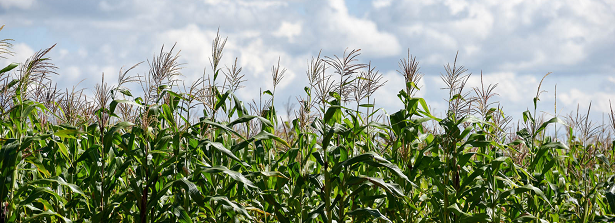Promoting climate resilient maize varieties in Uganda

Duration: January 1, 2018 – December 31, 2020
Project information
Summary: The uptake of quality assured maize seed by smallholder farmers is persistently low, this despite the fact that the seed has a much higher yield potential and is often more drought tolerant than the varieties traditionally grown by farmers. Just over 15% of Ugandan farmers buy quality assured maize seed from the formal seed market, the rest rely mostly on home-saved seed and low quality products from the local market. This research project “Promoting climate resilient seed varieties: Smallholder barriers to adoption and willingness to pay for seed of drought tolerant maize varieties in Uganda” investigates the adoption for drought tolerant maize varieties that have been specifically developed for specific agro-ecological zones in Uganda by CIMMYT and partners and looks into barriers for uptake of advanced seed technology, specifically focussing on downside risk. We assess the inhibiting role of downside risk with regard to productive investments by conducting randomized controlled trials to test the effects of bundling index insurance with drought tolerant maize varieties on willingness-to-pay and uptake of this maize seed.
CCAFS project alignment: The project aligns with CCAFS project “Develop Index insurance for drought-prone maize and bean-based farming systems in East (and West) Africa to enhance farmer adoption of climate-adapted germplasm” (CIMMYT-F4-EA-WA-P51).
Drought leads to crop yield losses and reduced food and livelihood security. Drought-tolerant germplasm is available but the risk of drought prevents farmer adoption. Insurance helps farmers manage risks and invest in inputs without worrying about crop losses and increased debt. Index insurance is a way to reduce risk and boost the use of agricultural inputs and equipment, leading to increased and more stable crop production. Index insurance can be combined with credits for insured smallholders, as the risk of non-repayment for lenders is reduced. It makes participation in the market for agricultural insurance and credit attractive for the private sector.
Index insurance needs to be attractive and affordable to farmers, and profitable to insurers. This project is assessing the design and impact of existing commercial insurance programmes that bundle insurance with seed and fertilizer. It is also examining the more complex impact of insurance on social equity. Research includes RCTs in Nigeria designed to assess the impact of a bundled fertilizer-insurance area yield product, which aims to insure 1 million bags of fertilizer in the year 2017. The CCAFs project is also working closely with The Drought Tolerant Maize for Africa Seed Scaling Project (DTMASS) http://www.cimmyt.org/project-profile/drought-tolerant-maize-for-africa-dtma/ whose mandate is to enhance farmer uptake of climate-adapted maize germplasm in Sub-Saharan Africa. DTMASS’ research includes RCT in Tanzania and Mozambique on index insurance bundled with climate-adapted maize varieties.
Countries: Uganda.
